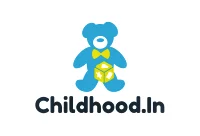Nine months is one of the most significant months in your baby’s development trajectory. One of the important elements of the 9 month old baby development milestones process you will find in your little one is the way he explores the world around him on his own.
In this article:
- Physical Development Milestones
- Cognitive Development Milestones
- Social & Emotional Development Milestones
- Communication Milestones
- Emerging Skills
- Advanced Skills
- Baby Care for Your Nine Month Old
- What You Can Do As Parents?
- When to Be Concerned?
Physical Development Milestones
- Your little one can sit without any support.
- Gets in and out of his sitting position by himself.
- Will become good at crawling and even chase you or his toys crawling.
- Can stand by taking support of your hand, furniture or the wall.
- Will instinctively put his hands forward whenever he’s about to lose balance. It’s called the “Parachute Reflex” which is human body’s tendency to prevent getting hurt or injured due to a fall.
- Eyesight is fast improving by the day, enabling him to track and follow moving objects.
- Can use his hands to hold, pass an item from one hand to another and even throw things.
- More confident holding even tiny things with his thumb and index finger.
Cognitive Development Milestones
- Will repeat small words like ‘Bye’.
- Loves banging objects on the ground, table or wall just to create and listen to different sounds.
- Your baby will start making small sounds when he is excited to see you.
Social & Emotional Development Milestones
- Will develop anxiety towards strangers.
- Loves to cuddle and being cuddled, and will try to please you with his innocent smile or making cute faces.
- If he doesn’t like something, will show his temper by shouting or screaming (if his favourite toy is taken away from him, for instance).
Communication Milestones
- Clearly understands what you mean when you say ‘No’.
- Avoids doing things that evokes a negative response from you.
- Closes his mouth tight and/or turns his head away when his tummy is full.
- Starts pointing at things he is interested in.
- Can say and wave ‘Bye’.
- Is getting better at copying and imitating by observing others’ gestures.
- While his babbling may look and sound meaningless, psychologists believe that from his point of view, he is talking to you.
- If he sees that you like something that he does and you laugh at it, he may keep repeating it and laugh along with you just to get a praise or appreciation.
Emerging Skills
- Your little one will further develop his cognitive abilities to link memories from the recent past.
- Will have sharper memory and may locate fully hidden objects with little effort.
- Can remember familiar faces very well now and can identify his grandparents, uncles, aunts and those who visit often and interact with him.
Advanced Skills
- Can express a range of emotions from anger to happiness.
- If an object falls from his grip and rolls away from him, he can follow and grab it.
Baby Care for Your Nine Month Old
- Support your baby everytime he needs help to stand up or walk.
- As nine month baby milestones are very important, track your nine month baby’s development with the Universal Growth & Development Chart.
- Contact a paediatrician if the growth is not as expected.
What You Can Do As Parents?
- Teach your baby how to wave ‘Bye’ or pass the ball while playing.
- Read books with brightly coloured pictures.
- Since he puts almost everything into his mouth, be careful to keep small objects out of his reach. ‘Small’ means any object that can fit into a paper towel roll.
- Since you see your baby standing with his own effort and is also taking effort to walk, you may think of buying him a shoe. But hold off for now, as walking bare feet is actually better for him to feel the ground and balance himself.
- Now that he has started showing his temper, you should learn and get better at distracting him into an activity in an instant.
- His babbles may sound meaningless for now. Still, just make sure you are talking to him with as much intent as you would to an adult, using gestures and voice modulation.
When to Be Concerned?
- Baby seems blank even when you actively interact with him or try laughing with him.
- If baby is unable to crawl, doesn’t babble or hold objects with a tight grip.
At month nine, your baby will learn to talk and walk very actively. While it is important that you enjoy this phase, you should also be wary of the things you keep around him and the choice of words when you interact with him.
Note: Each baby is different and therefore tends to grow at a different pace. Chances are that your little one may have crossed certain milestones already, or is probably a little behind on a few others, which is normal. If you still feel there is something of concern, do speak to your paediatrician/registered professional child healthcare provider.

